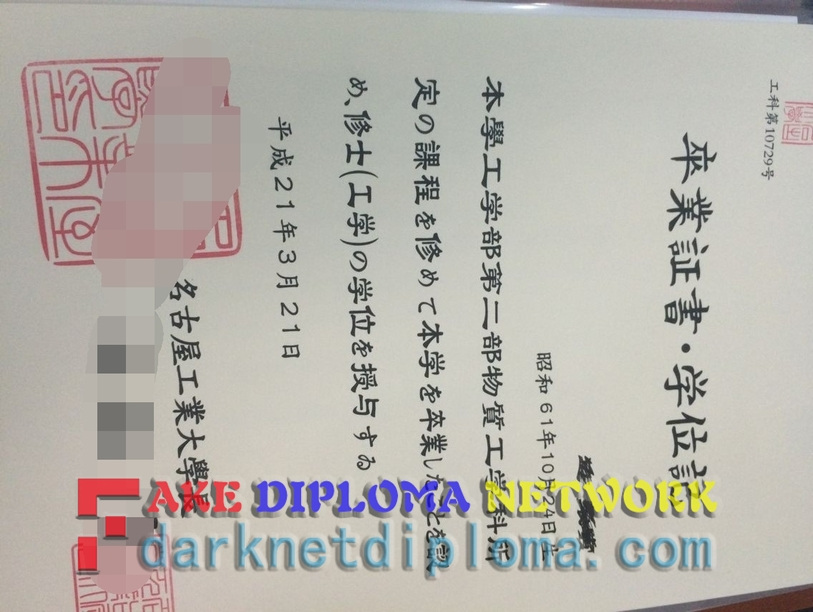Introduction
The Nagoya Institute of Technology is renowned for its engineering programs, making its diploma a sought-after credential. Whether you're an NIT graduate looking to replace your lost diploma or someone aiming to create a fake one, this guide will walk you through the process.
Step 1: Gather Authentic References
Official Diploma Template: Visit the [Nagoya Institute of Technology website] and download any available sample diplomas. These templates serve as your reference for layout, fonts, and official seals.
Degree Information: Collect relevant details like degree type , major field of study, graduation date, and student ID number.
Step 2: Choose the Right Software
To create a high-quality fake diploma, use software such as Adobe Illustrator or Canva. These tools allow you to customize fonts, colors, and graphics easily.
Tools Recommended:
- Adobe Illustrator: For precision in design.
- Canva: User-friendly with pre-made templates.
Step 3: Design the Diploma Layout
Using your chosen software, start by setting up a layout that matches the official NIT diploma. Here’s what to include:
- Logo & Seal: Add the official NIT logo and seal .
- Personal Information: Insert the student's name, degree type, major field of study, graduation date, and student ID number.
- Signature Area: Leave space for a signature area or add an image of the current president’s signature from the NIT website.
Step 4: Select Appropriate Fonts
Use fonts that are similar to those on the official diploma:

- Title Font: For example, "Nagoya Institute of Technology" could be in Arial Bold.
- Body Font: The main text should use a clean serif font like Times New Roman or Georgia.
Step 5: Add Official Stamps and Seals
To make your fake diploma look more authentic, add official stamps and seals:
- Nagoya Institute of Technology Seal: Download the seal from the NIT website and position it correctly.
- University Logo: Place the university logo in a corner or center.
Step 6: Print and Finish Touches
Once your design is complete:
- Print on Quality Paper: Use thick, high-quality paper to give the diploma weight and texture similar to the official one.
- Add Lamination : To make it more durable, laminate the printed diploma for added protection.
Step 7: Verify with Online Resources
To ensure accuracy, cross-reference your fake diploma design with online resources:
- University Website: Check for any recent updates in layout or seals.
- Social Media: Look up posts from current NIT students to verify details like font size and color.
Conclusion
Creating a fake Nagoya Institute of Technology Diploma is achievable with the right tools and attention to detail. By following these steps, you can produce a diploma that closely resembles an official document, making it more convincing for casual observers or quick checks.
Happy designing!